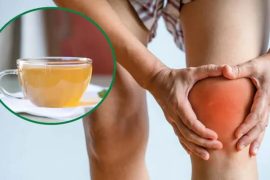When it comes to building healthy bones, there are actually two ingredients – vitamin D and calcium. Calcium supports the structure of bones and teeth, while vitamin D accelerates calcium absorption and bone growth. These ingredients are especially important during early childhood as we grow and our bones develop.
Therefore, it is important not to exclude them from the diet of children. But even older people with osteoporosis should be aware of these two ingredients, which are good for bones and keep the disease in check. Adults under the age of 50 should take 1,000 milligrams of calcium and 200 units of vitamin D. After age 50, 1.2,000 milligrams of calcium and 400 to 600 units of vitamin D. What do you eat to get these nutrients? What foods to include in your diet? The list below.
Products for healthy bones and teeth

Yoghurts. Many people get their vitamin D from the sun. But you can also find it, for example, in yoghurts. One cup of yogurt a day will not only provide you with vitamin D, but also your daily intake of calcium. Before buying yoghurts, check the ingredients carefully. Avoid Greek yoghurts as they contain much less calcium and almost no vitamin D.
Milk. “Drink milk, and it will be great” – I think everyone knows the slogan of the campaign to promote drinking milk. Well, there is a reason to encourage milk consumption. Just 1 cup of skim milk will provide you with 30 percent of your daily calcium requirement, and it costs only 90 calories. Try to buy fresh milk rather than ultra-pasteurized milk. There are not many substances in it that should prevent spoilage.
Cheese. Just because it’s rich in calcium doesn’t mean you can eat it in any amount. Remember that it is high in calories. Just 40 grams of cheddar contains over 30 percent of your daily calcium requirement. So enjoy your cheese wisely. There is no need to overdo it. Most cheeses contain small amounts of vitamin D.
Sardines. These small fish, often canned, are surprisingly rich in vitamin D and calcium. It is best to use them in the form of a paste for sandwiches, or buy ready-made in the chosen marinade. Also try sardine salads.
Eggs. Although they contain only 6 percent of the daily requirement for vitamin D, they are worth keeping in mind and including in your diet. Moreover, they are readily available. However, don’t throw away the yolks. Although not recommended for people with cholesterol problems, they do contain vitamin D.
Salmon. It is known to contain a lot of omega-3 fatty acids. However, little is said about the high vitamin D content of this fish. Just 80 grams of salmon will provide more than 100 percent of your daily vitamin D requirement. So eat salmon not only for your heart, but also for your bones.
Spinach. Good news for spinach foodies. It is an excellent source of calcium. A glass of cooked spinach already contains over 25 percent of your daily requirement for this element. Plus, you’ll eat iron, fiber, and vitamin A along with spinach.
Healthy breakfast cereals. Healthy, whole grain, preferably whole meal, dark. This type of cereal can contain up to 25 percent of your daily value for vitamin D (depending on manufacturer). If you don’t have time to cook salmon or can’t take advantage of the sun because its winter now, healthy cereals are a great way to provide your bones with vitamin D.
Tuna. Another fish on our list that is an excellent source of vitamin D. Just 85 grams of tuna can contain up to 40 percent of the daily requirement for this vitamin.
Broccoli. Several medium-sized broccoli florets contain more than 200 mg of calcium. An excellent option for lovers of green vegetables.








